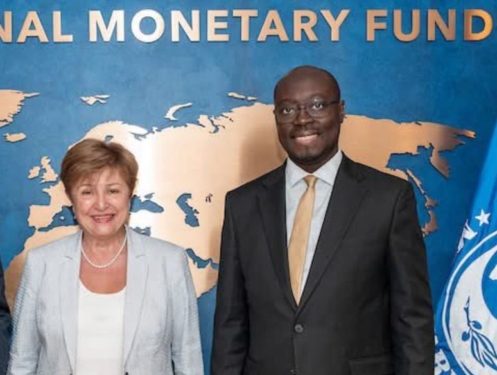Ghana’s Finance Minister, Dr. Cassiel Ato Forson, has announced a major boost for the country’s economic recovery programme following the International Monetary Fund’s (IMF) approval of Ghana’s fourth review under the Extended Credit Facility (ECF).
According to the Minister, the IMF Executive Board’s decision clears the way for the disbursement of a $370 million tranche, bringing renewed momentum to the government’s ongoing reforms.
In a statement shared shortly after the announcement, Dr. Forson declared:
“The IMF Executive Board has just approved Ghana’s 4th Review under the ECF Programme, clearing the path for a substantial $370 million disbursement!”He hailed the approval as a strong endorsement of the government’s economic management and reform efforts.
“This landmark approval validates Ghana’s unwavering commitment to fiscal discipline and strategic economic transformation,” he said.
Ghana entered the three-year, $3 billion ECF-supported programme with the IMF in May 2023 to help stabilise the economy following a period of severe macroeconomic instability, marked by high inflation, cedi depreciation, and unsustainable debt levels. The programme has since required periodic reviews to assess Ghana’s progress on agreed fiscal, structural, and financial reforms.
Dr. Forson noted that Ghana’s performance so far has surpassed expectations and is restoring confidence in the economy both locally and internationally.
“Our comprehensive macroeconomic policies and carefully crafted structural reforms are delivering real results that the international community recognizes and supports!” he added.
He described the IMF’s latest green light as a critical milestone in Ghana’s economic recovery journey:
“Today marks another decisive step forward in Ghana’s economic recovery journey, demonstrating that our reform agenda is not just working — it’s exceeding expectations and rebuilding confidence in our nation’s financial future!”
Ghana is expected to use the fresh disbursement to support budgetary operations, further stabilise the cedi, and meet external obligations as part of efforts to restore macroeconomic stability and growth.
This latest development comes amid ongoing negotiations with external creditors and Eurobond holders to restructure Ghana’s debt under the Common Framework, which remains essential to the full implementation of the IMF programme.

